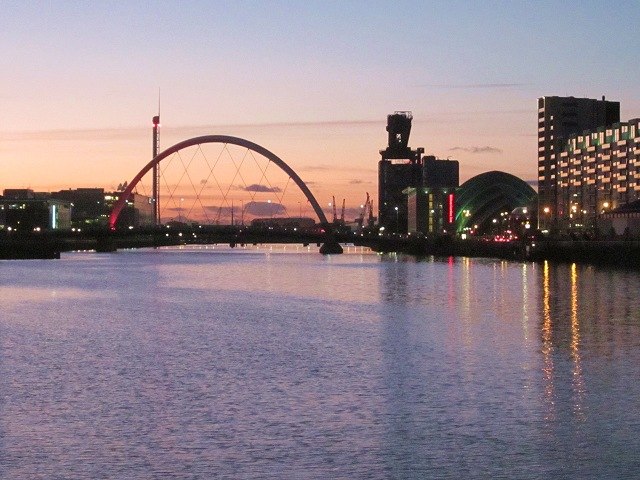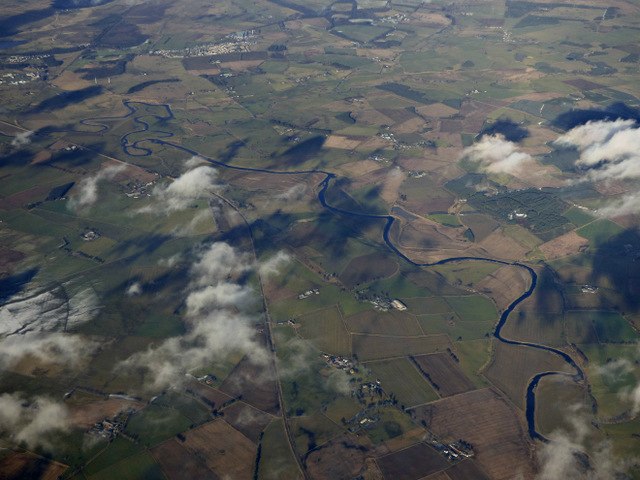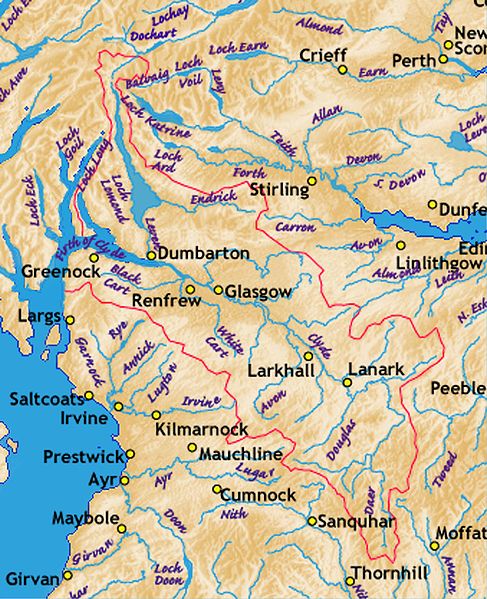New Lanark is a village on the River Clyde, approximately 1.4 miles from Lanark, in Lanarkshire, and some 25 miles (40 km) southeast of Glasgow, Scotland. It was founded in 1785 and opened in 1786 by David Dale, who built cotton mills and housing for the mill workers. Dale built the mills there in a brief partnership with the English inventor and entrepreneur Richard Arkwright to take advantage of the water power provided by the only waterfalls on the River Clyde. Under the ownership of a partnership that included Dale's son-in-law, Robert Owen, a Welsh utopian socialist and philanthropist, New Lanark became a successful business and an early example of a planned settlement and so an important milestone in the historical development of urban planning.
New Lanark Mill Hotel and Waterhouses by River Clyde
Dereliction in New Lanark in 1983.
Rosedale Street with Long Row to left, Double Row to near right and Wee Row to middle right
Robert Owen's house
The River Clyde is a river that flows into the Firth of Clyde in Scotland. It is the ninth-longest river in the United Kingdom, and the second or third longest in Scotland. It runs through the major city of Glasgow. Historically, it was important to the British Empire because of its role in shipbuilding and trade. To the Romans, it was Clota, and in the early medieval Cumbric language, it was known as Clud or Clut. It was central to the Kingdom of Strathclyde.
The River Clyde running through the city of Glasgow
The Carstairs meanders
Catchment of the River Clyde
Tributaries of the River Clyde








